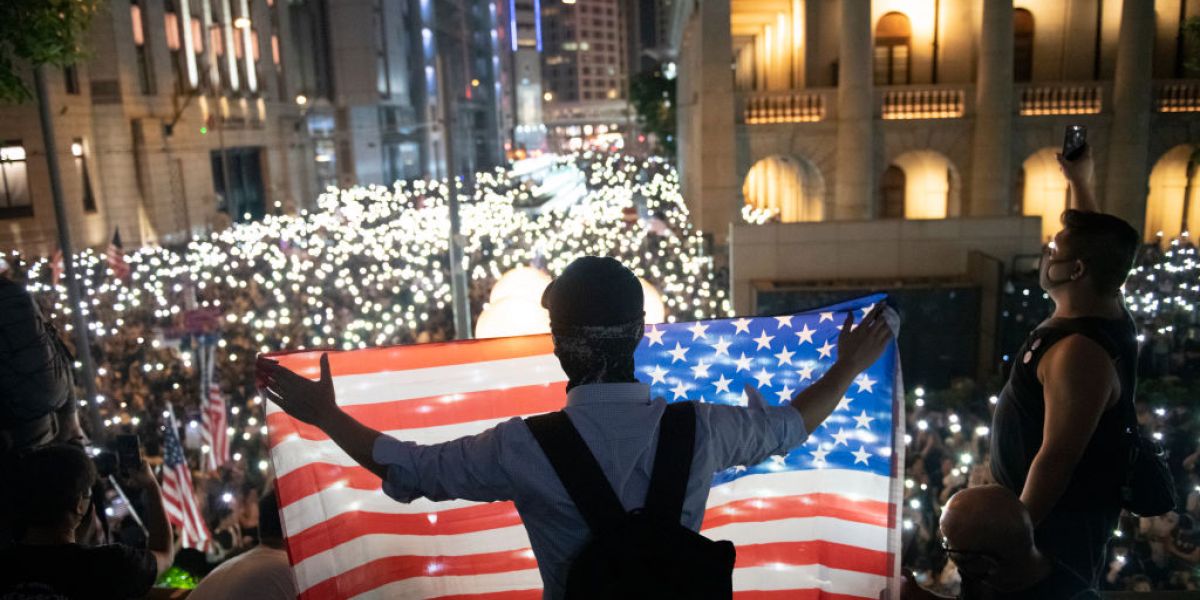Feeling it is unsafe to go outside, working day and night without breaks, seeing blatant examples of racism—a lot of society is experiencing this right now, but it’s only a small sample of the issues black Americans have always had to deal with.
Now, imagine that while you’re feeling all of these pressures, your employer asks you to lead a task force to solve racial injustice at the organization. This is what is happening to many black employees nowadays.
This is not a complaint; it’s a reality.
Don’t get me wrong: Black Americans are glad that finally after 400 years, there is mass outrage at racial injustice. Many of us have been fighting for change our entire lives, and were taught by our parents that it was our job to uplift our race. And we are glad that nonblack people want to be part of the solution.
But I want to shed light on the fact that while this is indeed a unique moment, the responsibility of dismantling systemic racism must not be placed solely on black employees by asking them to fully lead diversity and antiracism efforts.
Black people did not create these problems, so please do not expect us to resolve them alone. After all, we are exhausted.
Here are some tips to avoid black burnout while proactively improving your company’s approach to race.
First, do not inundate your black colleagues with requests to help you understand and solve racial injustice as if it is their duty. Remember that in many workplaces, we are outnumbered—and so many people are asking us for our input right now.
So if you have told your black counterpart this week either that you are now finally aware of your white privilege and want an action plan to learn about the black struggle, or if you used your last conference call to confess all of your racial sins over the years, know that chances are 100 other well-meaning nonblack people have done the same that day. Be mindful.
Second, take responsibility for your own education on racial issues. Keep in mind that black people had to use their free time to learn about other races, given that the American educational curriculum only taught a minimal amount of black history. So we do not think it’s too much to ask our professional peers to take the time to do research, read books, and watch films. Start today and learn; then feel free to ask genuine questions.
Third, human resource experts and diversity and inclusion leaders have a great opportunity to help us out. Please do not tell the entire company, even with the best of intentions, to reach out and have a “courageous conversation” with their black peers this week. We know the power of our testimonies, but like you, have our jobs to do. In addition, we are leading race relations task forces, peacefully protesting, and working to protect our families that are disproportionately dying from COVID-19 and police brutality.
Create companywide forums and Q&A sessions to educate large groups. Bring in experts, if needed, to provide actionable plans that systematically implement racial equity. Identify those of us who are open to speak, and respect those of us who do not want to talk about the situation.
Also, consider hosting pop-up “confessionals” on Zoom to allow nonblack people to share how they feel about their new level of awareness of their role in past racial inequity. Black people understand the need for nonblack people to process the upside-down world we live in.
I am able to write this because I work in an environment where my CEO and chief HR officer are leading from the front. I have not been asked to resolve race relations at work alone. I am fortunate to feel safe enough to express my emotions publicly for the first time in many years.
But the majority of my colleagues are exhausted and do not feel safe enough to express their mixed emotions. Most are tired of showing empathy and forgiveness to white managers who want to confess racist actions. They don’t want to continue being put in the spotlight on conference calls surrounded by leaders‚ yet feeling alone.
Nonblack leaders, please just be aware that while you may want to lift up black voices right now, you must be mindful of the physical and emotional bandwidth of black employees and leaders—and first take responsibility to be the change before asking black workers to lead the change. We can’t afford a mass burnout.
Najoh Tita-Reid is senior executive of marketing reinvention at Logitech.
More opinion in Fortune:
- 4 ways companies can thrive in the COVID-19 economy, according to philanthropy strategists
- A clampdown on corporate tax avoidance is coming. Companies should embrace it
- COVID-19 can’t be used as an excuse to limit skilled immigration
- Listen to Leadership Next, a Fortune podcast examining the evolving role of CEOs
- WATCH: The CEO of Canada’s biggest bank on the keys to leading through the coronavirus pandemic


